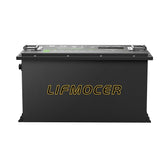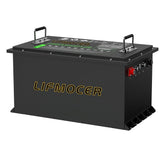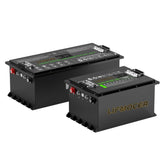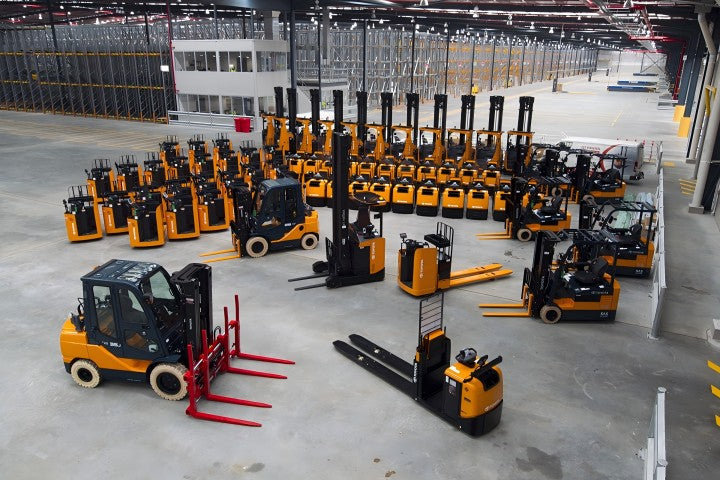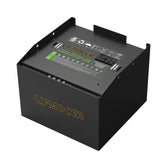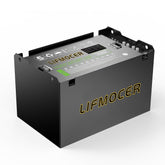Lithium Forklifts Surge in Eco-Consistent Warehouses
Introduction
As the global logistics industry accelerates its transition to sustainable development, the new energy forklift market is experiencing explosive growth, and lithium forklifts are becoming the core equipment for building eco-consistent warehouses. This trend has inspired continuous innovation in new energy forklift technology in Asia, which has not only promoted the overall progress of the forklift industry, but also prompted manufacturers and suppliers to focus on improving product performance and energy efficiency. With its zero-emission characteristics, significantly improved energy efficiency and low maintenance cost advantages, lithium-ion technology has established a new sustainable development benchmark in the field of industrial electric vehicles.
The Rise of Lithium Forklifts in Sustainable Warehousing
Traditional forklifts are powered by internal combustion engines or lead-acid batteries, which often seem to be unable to cope with the needs of modern sustainable logistics. In contrast, lithium forklifts have many advantages such as zero emissions, low noise and low energy consumption, and have therefore been widely used in the logistics field. In particular, electric forklifts have become standard in indoor logistics places such as supermarkets, warehouses and logistics parks.
Compared with traditional batteries, lithium batteries have significant advantages. They take a short time to charge and have a long service life. This minimizes the downtime of forklifts and greatly improves productivity. At a time when many companies are committed to reducing carbon footprint, lithium forklifts have become an indispensable key link in green supply chain solutions.
Benefits Beyond Emissions Reduction
In addition to their outstanding environmental characteristics, lithium-powered forklifts also have operational advantages. Forklifts using lithium technology greatly reduce lithium battery maintenance work, such as watering, equalization charging and headaches of acid spills that are common in lead-acid batteries. This not only simplifies the daily complex operation process of the warehouse, but also significantly improves the safety of operations, making the warehouse environment safer and more reliable.
From a cost perspective, lithium-powered forklifts help reduce the total cost of ownership (TCO). Although the initial investment is higher than traditional alternatives, in the long run, the cost savings in energy consumption, manual maintenance and battery replacement are considerable, making lithium-ion forklifts a very cost-effective choice, bringing long-term and stable cost benefits to enterprises.
Integrating with Energy-Efficient Infrastructure
Eco-consistent warehouses are often designed with renewable energy systems, such as installing solar panels to obtain clean energy and using energy-efficient lighting to reduce energy consumption. Lithium-ion forklifts fit perfectly in such environments by consuming less electricity and supporting energy-efficient charging stations. Not only that, lithium-ion forklifts are highly compatible with smart warehouse management systems, enabling more accurate data tracking, helping companies to rationally allocate and optimize their forklift fleets and improve overall operational efficiency.
In the current trend of warehouse electrification, lithium-ion forklifts play an important role. Companies use lithium-ion forklifts to help meet the stringent requirements of sustainability certifications while ensuring that they fully comply with various environmental compliance standards and steadily move towards green development goals.
A Key Driver of Green Logistics
Behind the booming development of ecologically consistent warehouses, the development of green logistics is playing a powerful role. The rise of green logistics has prompted companies to deeply reflect on the way goods are transported, and lithium-ion forklifts are a typical representative of this wave of change. They can greatly reduce noise pollution and completely eliminate harmful emissions. They are definitely a forward-looking strategic investment made by companies with an eye on long-term sustainable development.
In industries such as food delivery, pharmaceuticals, and e-commerce, which have stringent requirements for clean, quiet, and efficient operations, lithium-ion forklifts are rapidly becoming the first choice for companies due to their outstanding performance, leading the industry towards a new journey of green development.
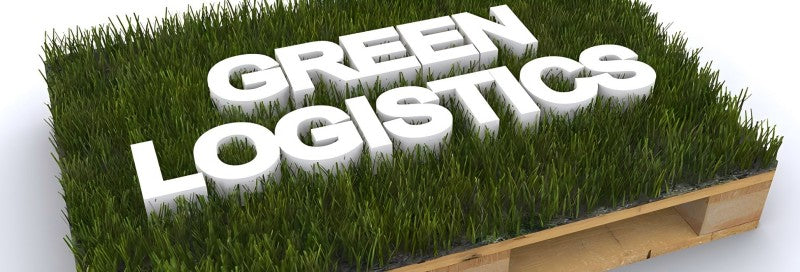
Conclusion
The surge in lithium forklifts across eco-consistent warehouses reflects a broader shift in how companies approach efficiency and sustainability. With their powerful performance, low environmental impact, and long-term economic advantages, lithium forklifts are not just a trend—they are the future of warehouse innovation.
By investing in this clean technology, businesses position themselves as leaders in sustainable material handling, contributing to a more efficient and environmentally responsible global supply chain.


